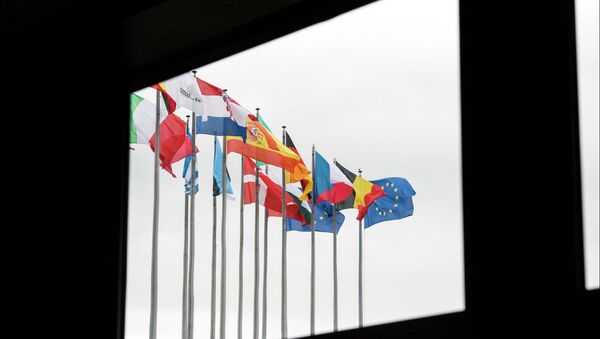Brussels this week moved to cut red tape and make its institutions more transparent after a rise in Euroscepticism throughout Europe and a lack of trust in the EU. The European Commission has announced its "Better Regulation Package" to open up its procedures and cut back on legislation that is hard to understand after a huge rise in popularity of Eurosceptics in Europe.
The Commission's 'Better Regulation Agenda', it said, will "boost openness and transparency in the EU decision-making process, improve the quality of new laws through better impact assessments of draft legislation and amendments, and promote constant and consistent review of existing EU laws, so that EU policies achieve their objectives in the most effective and efficient way."
@EuranetPlus @TimmermansEU ‘Better regulation’ – the big questions http://t.co/OsWcTGO89E pic.twitter.com/BASG0aOSkk
— EUROPEAN TRADE UNION (@etuc_ces) May 19, 2015
However, Bernadette Ségol, General Secretary of the European Trade Union Confederation (ETUC) told Sputnik:
"I am in favor of efforts to improve legislation, but these proposals will make the legislative procedure longer, costlier and more bureaucratic.
"I do not think the European Commission will get away with restricting the right of democratically elected politicians to change legislative proposals in the name of 'better regulation'. I am very sceptical about giving so-called experts a much bigger role in EU legislation. Impact assessments are not simply technical, but make political recommendations based on limited criteria, such as for example cost without considering social benefit."
"I am pleased that some inappropriate proposals have been dropped as a result of discussions in the run up to the launch of this package."
Unelected Undemocratic Experts
One key are that ETUC is concerned about is the process whereby the European Commission asks the European Parliament and Council to carry out an impact assessment if they significantly change Commission proposals. ETUIC says this is a "clear attempt to put a brake on the right of elected MEPs and Ministers to take democratic decisions, and to make it more difficult to change Commission proposals."
ETUC believes unelected 'experts' will be given a major role in EU law-making and a new bureaucratic machine will be created. "This makes the legislative procedure longer, costlier and more bureaucratic," Ségol said.




